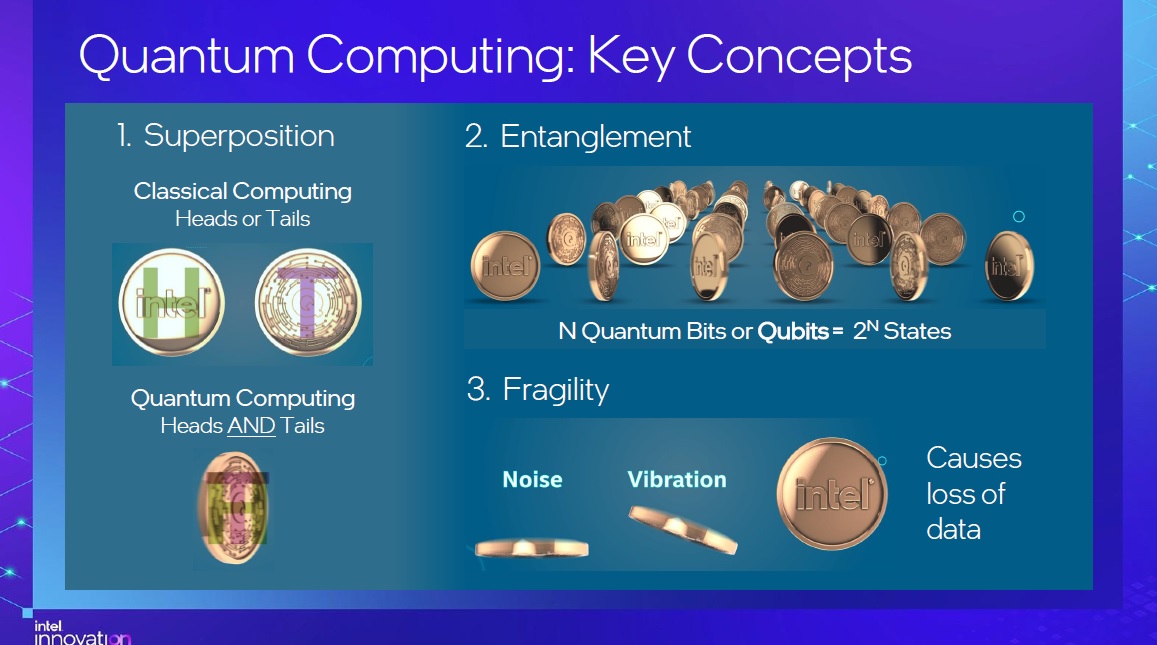
Quantum computing, like new paradigm of quantum computing, offers faster solutions to complex problems compared to conventional computing. This technology has the potential to transform various industries, facing challenges related to climate change, chemical engineering, pharmaceutical research, finance and aerospace design, among others.
Although there are exciting advances in this field, there are also there are important challenges that must be overcome to take advantage of their full potential.
The road to building a true quantum computer
Quantum computing is based on properties of quantum physics such as overlapping and intertwining. However, quantum bits (qubits) are extremely fragile and any external interaction can result in data loss. Additionally, qubits must operate at very low temperatures to minimize noise.
Although quantum systems offer greater efficiency and performance to address certain problems, they will require great computing power to design, model and make them work. These systems will not completely replace conventional computing, but will work alongside supercomputers in a hybrid quantum/classical model.
Likewise, current quantum systems have tens or hundreds of qubits, and quantum computers require entangled qubits. However, to achieve commercial relevance and a quantum computer it will be necessary scale to more than a million qubits and overcome challenges such as the fragility of qubits and the creation of higher-level programming languages. Although there have been significant advances in recent times, it is estimated that large-scale implementation that provides commercial value to users is still a long way off. about 10-15 years view, according to Intel data.
Challenges and opportunities of quantum computing
Quantum computing faces significant challenges, but also offers exciting opportunities. Improve the quality and quantity of qubits It is one of the main challenges, which requires cleaner materials and more efficient and sophisticated interconnection technology than that which predominates in current methods. Likewise, error correction is essential to ensure the stability of qubits and allow reliable calculations.
Despite these technical challenges, the future of quantum computing is promising and requires collaboration between the scientific community, businesses and industry leaders to drive its progress, because it has the potential to revolutionize fields such as scientific research, drug design, finance, and many more. Therefore, collaboration and interdisciplinary research are key to advancing and exploiting the full potential that this revolutionary technology offers.
Intel as a precursor to quantum computers
Over the past decade, Intel has invested heavily in quantum computing research, taking a comprehensive approach of systems architecture that addresses the entire computing stack. From qubit architecture and algorithm research to control electronics, interconnects, quantum software tools and compilers, each element is carefully researched and developed.
Intel is focusing on silicon spin qubits, which resemble traditional transistors and allow for easy integration with existing silicon manufacturing processes. This approach offers the advantage of following Moore’s Law, which accelerates the pace of system improvement and scaling. Additionally, Intel has developed a comprehensive software toolchain and programming interface that allows developers to create quantum algorithms and run them in simulation and on real quantum hardware.
Signed: Norberto Mateos, EMEA Partner Sales Director & Spain Country Manager.




